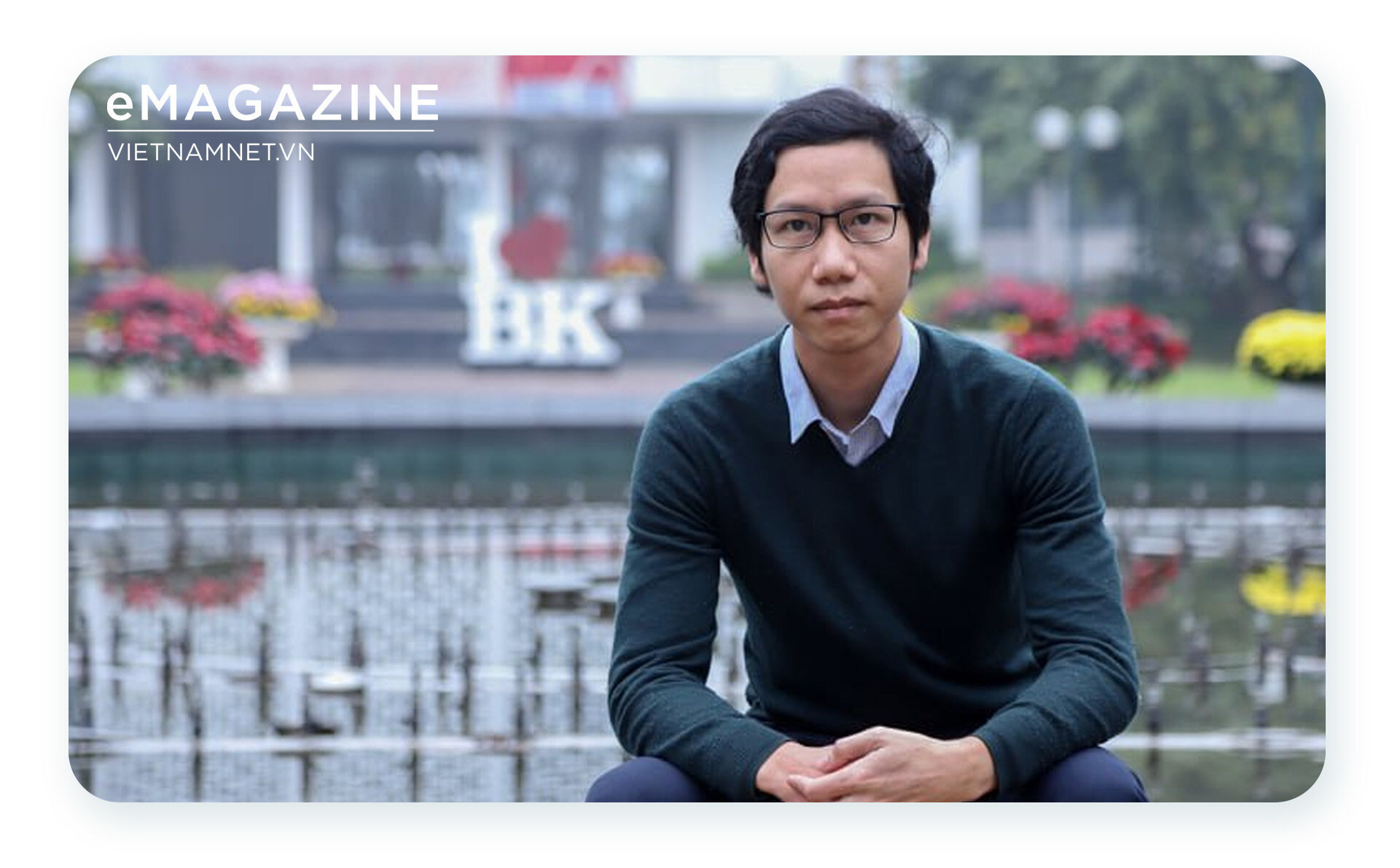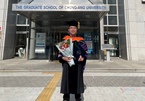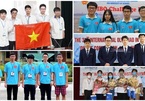
Associate Prof Dr Le Van Lich
He is the youngest candidate for the title of associate professor in 2021. Lich, born in 1988, is a lecturer at the Institute of Material Science and Engineering under the Hanoi University of Science and Technology.
He is an alumnus of the school, and obtained a master’s decree there and then a doctorate at Kyoto University. His recent research focuses on developing and using phase field models to study the mechanical and physical properties of materials.
Making a decision
In 2017, after three years of studying as a doctoral student and one year of study as a postdoc in Japan, Lich decided to return to Vietnam amid the surprise of friends and co-workers.
“Many people asked me about the reason behind my decision. Actually, I thought a lot about the next path I needed to follow during the year before leaving. I thought that if I continued working at an all-too-familiar place after graduation, I would get into a rut when approaching new research themes. I wanted to challenge myself and find an independent research direction,” he said.
At that time, there was information about the recruitment of postdoc candidates in the field related to Lich’s research in the US, UK and Germany. As there were many options, Lich had a talk with his advisor Prof Takayuki Kitamura.
“The teacher told me that everyone should choose a place to devote all his energy and capability. He decided to stay in Japan though he had once worked at NASA in the US because he felt that his contributions in Japan would be more significant,” he said
After hearing that the Hanoi University of Science and Technology was recruiting lecturers, he decided to return to the school where he had once studied.
Finding a research path
Despite thorough preparation for the return, he still faced difficulties. At that time, the Hanoi University of Science and Technology began operating under the autonomy mode and support to new lecturers remained modest. He had to use savings to cover basic needs. Later, he saved his monthly salaries to buy computers to set up a research team.
However, the bigger difficulty was finding a path for independent research.
In fact, it would have been more favorable to continue following the research set by his previous advisor as there were still many research topics. However, he thought that if he continued that way, he would not make considerable progress in research.
In 2018, he spent time to look for new research directions. He also cooperated with other research teams.
One year later, Lucy’s research team began new research projects, cooperating with some businesses and receiving support from the school. He found a specific research direction related to phase field digital simulation, which he is still pursuing.
He realized that this is a strong and useful tool for studying physical phenomena occurring in materials that current experimental methods still cannot observe.
Important factors on research path
Lich wants to join forces with other scientists to build up a ‘phase field community’ instead of carrying out separate research.
Noting that the competition among universities helps them find problems and improve, it also causes localization and lack of cooperation in research. He hopes that scientists in related fields will cooperate to create more valuable products that better serve the benefits of the community.
This will take a lot of time, effort and patience from research teams to understand each other’s abilities and find common interests. At present, the number of specialists in each field is still modest, which creates significant obstacles to the development of science in the country.
In addition to research, Lich also spends time on training, especially allowing university students to joi research projects.
Lich began scientific research when he was a third-year student.
“That excited me and helped me a lot in my research later,” he said.
“I don’t ask students to create new research results. I just hope they can study in a serious research environment so that they have working skills and can promote their abilities, preparing for their future,” he said,
Becoming the youngest associate professor in 2021, Lich said the most important things for a researcher are the effects of their work in the areas of expertise and the positive values contributed to the community and society.
Thuy Nga

Vietnamese man earns doctorate in South Korea at the age of 29
Nguyen Tri Hai, 29, thought that he just needed to find a good professor and a lab to have a future. However, he had no work to publish after two years of research.

Three universities are popular choices for 19 international Olympiad medalists
Of the 19 students winning medals at the 2021 international Olympiads, only two will study abroad. They mostly chose natural sciences for tertiary education – physics, chemistry, mathematics and information technology.